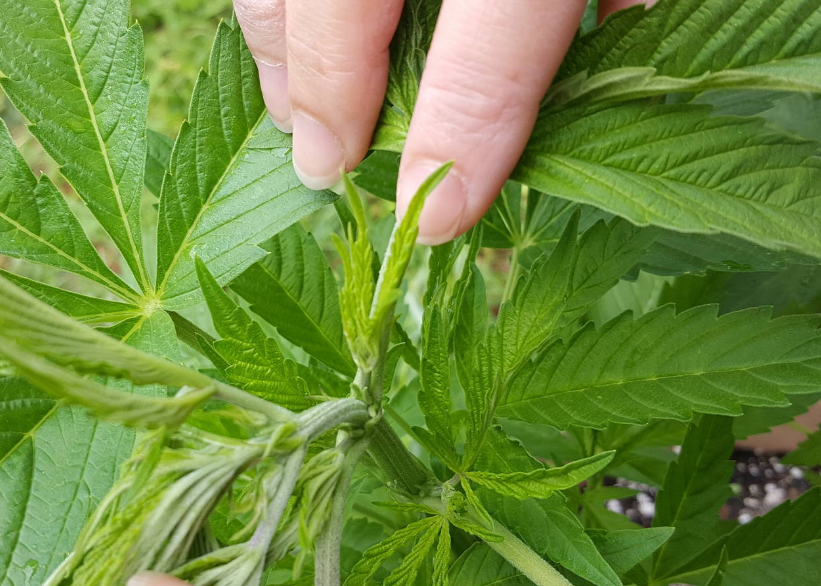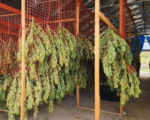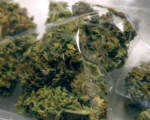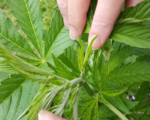Attorney General Pam Bondi just promised to dig into a North Carolina tribe’s booming cannabis business after a senator raised red flags about kids and illegal transport. This move could shake up tribal rights and federal drug laws, but what exactly sparked it and what comes next?
During a heated Senate Judiciary Committee hearing on October 7, 2025, Sen. Thom Tillis pressed Bondi on the Eastern Band of Cherokee Indians’ cannabis operations. Tillis claimed the tribe markets products to young people and ships cannabis beyond their lands, breaking federal rules.
Bondi confirmed the Department of Justice will look into these claims. She told Tillis the DOJ aims to check if the tribe’s actions cross legal lines, especially since cannabis remains illegal under federal law despite some state changes.
This isn’t just talk. Bondi’s response came right after Tillis highlighted how the tribe’s dispensary might draw in outsiders and risk youth exposure. The hearing lit up debates on how tribes handle cannabis on sovereign land.
Sources close to the matter say the probe focuses on transport plans mentioned by tribal leaders back in 2023. If proven, it could lead to big enforcement actions.
Roots of the Tribal Cannabis Boom
The Eastern Band of Cherokee Indians kicked off their cannabis program in recent years, tapping into a market that’s exploding nationwide. On their western North Carolina reservation, they’ve built a major dispensary that sells to adults, pulling in serious revenue for the community.
Tribal cannabis isn’t new. Many Native American groups see it as a way to boost economies hit hard by history. A 2023 report from the National Conference of State Legislatures showed over 20 tribes now run similar programs, often clashing with federal oversight.
But here’s the catch: federal law still bans marijuana, even as states like North Carolina edge toward reform. The Cherokee’s setup lets them grow and sell on their land, but moving products off-reservation? That’s a gray area that could invite trouble.
Tillis pointed out potential marketing aimed at kids, like colorful packaging or ads that appeal to youth. If the DOJ finds evidence, it might set precedents for other tribes.
Experts say this ties into broader shifts. Cannabis sales hit $29 billion in the U.S. in 2023, per a Statista study, with tribal markets adding a unique twist.

Key Concerns and What the Probe Might Uncover
At the heart of this is safety and law. Tillis worries the tribe’s transport crosses state lines, violating the Controlled Substances Act. Bondi nodded to these issues, saying her team will review all angles.
One big question is how the cannabis gets from farms to the dispensary. Tribal officials have said they use secure methods, but critics argue it spills over boundaries.
This investigation could expose gaps in federal-tribal relations. It might reveal if products reach non-tribal areas, fueling black markets or youth access.
To break it down, here are some core issues at play:
- Youth Marketing Claims: Allegations include kid-friendly branding that could lure minors, against federal guidelines.
- Transport Violations: Moving cannabis off tribal land might break interstate commerce laws.
- Economic Impact: The program brings jobs and funds to the tribe, but probes could halt growth.
A table of recent tribal cannabis milestones shows the trend:
| Year | Event | Impact |
|---|---|---|
| 2014 | DOJ memo allows tribal cannabis under certain conditions | Opened doors for sovereign programs |
| 2021 | Cherokee tribe legalizes medical cannabis | Boosted local health access |
| 2023 | Recreational sales begin on Cherokee land | Revenue jumps, drawing tourists |
| 2025 | Federal probe announced | Potential crackdown looms |
This data comes from public records and industry trackers like Marijuana Moment.
Bondi’s track record as Florida’s former AG shows she’s tough on drug issues, but she also backs some reforms.
The probe isn’t targeting all tribal efforts, just specific claims. Still, it raises questions about fairness.
Broader Implications for Cannabis Reform
If the DOJ digs deep, it could ripple across the country. Other tribes watching closely might adjust their programs to avoid similar heat.
Tillis tied this to bigger federal changes, suggesting rescheduling cannabis could capture lost revenue. Right now, the Drug Enforcement Administration is reviewing marijuana’s status, with updates as recent as October 8, 2025.
Reform advocates argue probes like this highlight the need for clear national laws. Without them, tribes and states face constant uncertainty.
For everyday people, this matters because cannabis touches health, jobs, and crime. A 2024 Pew Research Center poll found 57% of Americans support full legalization, up from 32% in 2000. But federal holdouts create confusion.
In North Carolina, where state laws lag, tribal sales offer access but spark debates on equity. If Bondi finds wrongdoing, it might push lawmakers to act faster.
This isn’t isolated. Similar tensions popped up in New York and Oklahoma, where tribal cannabis undercut state markets.
The investigation underscores a push-pull between tradition and modern business. Tribes argue sovereignty lets them decide, while feds worry about spillover effects.
As this unfolds, it could reshape how America handles cannabis on native lands. Bondi’s team might wrap up quickly or drag on, depending on findings.
In the end, Attorney General Pam Bondi’s decision to probe the Eastern Band of Cherokee Indians’ cannabis program highlights the tense dance between tribal rights and federal drug laws, a clash that’s heating up as more states embrace reform. It’s a story of economic hope clashing with legal hurdles, leaving many to wonder if this will spark real change or just more red tape.
Maria Garcia is an award-winning author who excels in creating engaging cannabis-centric articles that captivate audiences. Her versatile writing style allows her to cover a wide range of topics within the cannabis space, from advocacy and social justice to product reviews and lifestyle features. Maria’s dedication to promoting education and awareness about cannabis shines through in her thoughtfully curated content that resonates with both seasoned enthusiasts and newcomers alike.








